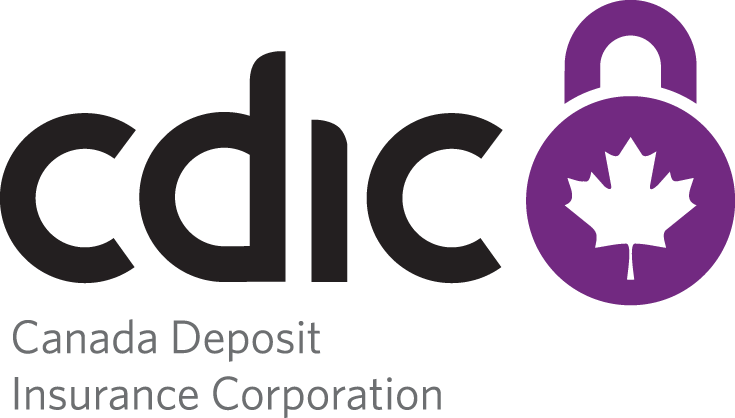Deposits held in trust
We protect eligible deposits held in trust separately from other deposits held by the trustee or a beneficiary in their own name at the same CDIC member institution, provided:
- There is a valid trust (established with or without formal documentation) as determined under the laws of the province or territory in which the trust is established;
- Required information about the trustee and the beneficiaries is disclosed on the records of the CDIC member institution prior to the failure of a member institution.
The requirements that trustees must meet for CDIC protection differ for different types of trustees, for example:
- A trustee: e.g., a grandmother who deposits money in trust for her grandchildren (the beneficiaries) to use when they are adults.
- A professional trustee: e.g., a lawyer who holds a down payment in trust for clients (the beneficiaries) buying a house.
- A nominee broker: a broker who (holds a GIC in nominee name (i.e., in trust) for clients (the beneficiaries).
For deposits held in trust, CDIC would aggregate all deposits placed by the trustee for the same beneficiary at the failed CDIC member institution. The total is insured to a limit of $100,000 per beneficiary if the trustee meets CDIC’s disclosure rules.
Learn more about how CDIC protects Trustees and Professional Trustees.
If you are a Nominee Broker, specific information about the disclosure requirements you must meet can be found under Changes to deposit insurance affecting Nominee Brokers.
Insuring trust beneficiaries: how it works
CDIC coverage is free and automatic – depositors do not have to sign up to receive protection. Eligible deposits are protected up to $100,000 per deposit insurance category. Eligible deposits include savings accounts, chequing accounts, GICs or other term deposits, money orders, certified cheques, and bank drafts issued by CDIC members.
CDIC protects deposits held in trust separately from deposits in other deposit insurance categories. CDIC’s protection for deposits held in trust applies to the trustee holding the deposit (i.e. the depositor) but the protection can extend to each beneficiary of the trust deposit if key information is disclosed by the trustee to the CDIC member institution. CDIC relies on the latest information disclosed on the records of the Member Institution to make an insurance determination.
Where no beneficiary information is provided on the records of the Member Institution, CDIC only protects up to $100,000 in the name of the trustee (the depositor).
However, if the correct information about the beneficiary is disclosed, CDIC can extend protection up to $100,000 per beneficiary of the deposit. The following examples show how CDIC can provide protection for each beneficiary.
Example 1: Partially Insured up to $200,000
Eileen deposits $250,000 in trust for her two grandchildren, Paul and Lynn, at a CDIC member institution. Eileen is the trustee, and Paul and Lynn are the beneficiaries. Paul and Lynn each have an equal interest (i.e. 50% each) in the deposit.
Eileen has met CDIC disclosure requirements for trustees.
-
$250,000
in a trust for her two grandchildren
Total
$250,000
Protected by CDIC
$200,000
In this case, the eligible deposit held in trust by Eileen is protected up to CDIC’s limit of $100,000 for each beneficiary. As Paul and Lynn hold an equal interest, CDIC can extend protection of $100,000 for Paul and $100,000 for Lynn. CDIC would therefore reimburse Eileen (as the trustee) $200,000 for the trust deposit. The final $50,000 in the deposit would not be insured by CDIC.
Example 2: Fully Insured for $230,000
Joe has deposits with a CDIC member institution. These include:
- Deposit #1 (a trust deposit): a $180,000, three-year GIC in trust for his two children (Sam and Sue). Joe is the trustee and has met CDIC’s disclosure requirements. Joe has assigned Sam and Sue $90,000, of the deposit, each.
- Deposit #2 (deposit in Joe’s name): $50,000 in a chequing account in Joe’s own name.
-
$180,000
in a three-year GIC in trust for his two children
-
$50,000
in a chequing account in Joe’s own name
Total
$230,000
Protected by CDIC
$230,000
Because Joe met the disclosure requirements for Deposit #1, CDIC can extend coverage to each beneficiary of the deposit ($90,000 (Sam) + $90,000 (Sue) = $180,000).
Because Deposit #2 falls into a different deposit insurance category, Joe will receive $50,000 in protection for the deposit in his own name.
